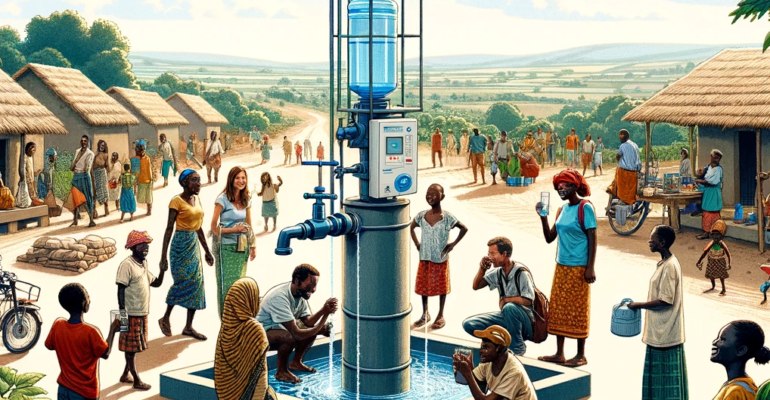Baseline Study Definition and Practical Example in M&E
December 25, 2023 2023-12-25 15:57Baseline Study Definition and Practical Example in M&E
Baseline Study Definition: A baseline study is an analysis conducted at the beginning of a project or program to collect data on the status of the target population or situation before an intervention is implemented. This serves as a point of reference against which future changes or impacts can be measured.
Practical Example: Enhancing Access to Safe Drinking Water
Context: An NGO is planning to implement a water sanitation project in a rural community to provide access to clean and safe drinking water. The project includes drilling boreholes, setting up water purification systems, and conducting hygiene promotion activities.
Application in M&E
Baseline Data Collection:
Before starting the project, the NGO conducts a baseline study to measure the current access to clean water, incidence of water-borne diseases, and community practices regarding water usage and sanitation.
Designing the Evaluation:
Information from the baseline study helps in creating a logical framework and setting realistic targets for the project. It informs what indicators should be monitored and evaluated throughout the project’s cycle.
Implementation:
The baseline study’s findings are used to make informed decisions on where to place boreholes and focus hygiene promotion efforts to maximize benefits.
Monitoring:
Throughout the project, periodic monitoring uses the baseline data to track progress against the initial conditions. Variations from the baseline can indicate the effectiveness of the project activities.
Post-Implementation Data Collection:
At the end of the project or at specific milestones, data similar to the baseline are collected to assess the outcomes and impact of the intervention.
Analysis:
By comparing baseline and post-implementation data, the NGO can evaluate the extent to which the project has changed the access to clean drinking water and improved sanitation and hygiene practices.
Reporting and Learning:
The baseline study and subsequent data collection points provide a narrative of how the intervention has led to specific outcomes and what can be improved in future projects.
Decision Making:
Using evidence from the baseline and evaluation data, the NGO makes decisions on whether to scale up the intervention, replicate it in other areas, or make adjustments.
Key Points in Application
- Data Relevance: Ensuring that the data collected at baseline is directly relevant to the outcomes the project seeks to influence.
- Comparability: Baseline studies must be consistent in methodology with follow-up studies to allow for meaningful comparisons over time.
- Stakeholder Engagement: Engaging with local community members during the baseline study can help gain insights into the context and buy-in for the project.
Additional resources for understanding baseline studies in the context of M&E include:
- Indicator Development: Selecting clear indicators that will be measured in the baseline study and used throughout the project’s lifecycle to track progress.
- Survey Design and Sampling: Careful design of data collection tools and sampling strategies to ensure representative and reliable baseline data.
- Data Quality Assurance: Implementing procedures to ensure the accuracy and reliability of the data collected during the baseline study.
- Ethical Considerations: Ensuring ethical protocols are followed, which includes informed consent and confidentiality for participants.
- Capacity Building: Training the data collectors and M&E staff on how to conduct baseline studies and ensuring they understand the importance of collecting high-quality data.
Resources for further learning could include taking courses from organizations like MEASURE Evaluation or reading publications from development bodies like UNDP and USAID, which often include guidelines on conducting baseline studies as part of M&E processes.











